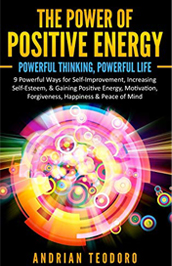How Divorce Affects Digestion and Mood: The Gut-Brain Connection

- This blog contains affiliate links, which we may receive a commission for purchases. The decision is yours, whether or not you decide to buy.
How Divorce Affects Digestion and Mood
Divorce is one of life’s most stressful experiences, and its effects often go beyond emotional pain. Many people notice stomach issues, changes in appetite, or mood swings during this time. Stress doesn’t just stay in the mind- it travels through the body, especially through the gut-brain connection.
In this article, you’ll discover:
- How stress from divorce can affect digestion
- How the gut can influence mood before, during, and after divorce
- Practical ways to support both gut health and emotional well-being
This information is useful for both men and women who want to understand why their body reacts the way it does and what they can do to feel better.
How Does Divorce-Related Stress Affect Digestion?
Stress triggers the release of hormones like cortisol, which can upset the gut. Common signs include:
- Stomach discomfort, bloating, or irregular bowel habits
- Heartburn or acid reflux
- Feeling “off” after meals
A 2023 study found that people experiencing relationship stress showed measurable changes in gut bacteria and digestive function (source), proving that emotional stress directly impacts digestion.
Can Your Gut Influence Mood Before, During, and After Divorce?
The gut plays a crucial role in more than digestion it also affects your emotions at every stage of divorce.
Before divorce: Anxiety, uncertainty, or tension can disrupt digestion and create stomach discomfort, bloating, or irregular bowel habits. Stress hormones can alter gut bacteria, subtly impacting mood even before major life changes occur.
During divorce: Heightened emotional stress often causes noticeable digestive symptoms. Many people experience changes in appetite, heartburn, or digestive discomfort, alongside mood swings, irritability, or sadness.
After divorce: Even after the legal process, lingering stress can continue to affect the gut. Maintaining a balanced diet, sleep schedule, and stress management routines helps restore gut health and supports emotional recovery.
Understanding this connection shows that your gut and brain are constantly interacting, and taking care of your digestion can help protect your mood at every stage of divorce.
What Steps Can Support Gut Health and Mood?
While you cannot change divorce itself, there are ways to support your body and mind:
Eat well: Include fiber, fruits, vegetables, and fermented foods
Stay active: Regular movement supports digestion and reduces stress
Prioritize sleep: Rest helps regulate hormones and gut health
Manage stress: Mindfulness, deep breathing, or journaling can help
Share feelings: Talking with someone you trust eases emotional strain These simple strategies target both the physical and emotional effects of stress, helping you feel more balanced.
Why Understanding the Gut-Brain Connection Matters
Stress from divorce affects both the mind and body. Understanding the gut-brain connection can help you take small, intentional steps to support digestion, mood, and overall well-being, no matter your gender.
Take the Next Step for Your Well-Being
Divorce is challenging, but paying attention to both your gut and your emotions can make a difference. Notice how your body reacts, try simple ways to support digestion and mood, and reach out to someone you trust if you need support. Small, consistent steps can help you feel more balanced and resilient.
Disclaimer: This blog post is for informational purposes only and is not a substitute for professional advice or treatment. The author and publisher do not guarantee the accuracy or completeness of the information and are not liable for any damages resulting from its use. Please consult a qualified professional for advice specific to your situation.
PHOTO CREDIT: MART PRODUCTION
You may also like
Books
Buy now from Amazon
- The Power of Positive Energy
- Manifest: The Sunday Times bestseller that will change your life
- Parenting Apart
Podcast
Kate Daly is co-founder of amicable and host of the The Divorce Podcast. Kate created The Divorce Podcast to discuss and demystify divorce, separation and co-parenting in the UK. In each episode, Kate is joined by experts in their field to explore divorce and separation from every angle.
Articles
- Divorce Mediation Explained
- 7 Things You Should Think About Before Filing For Divorce
- Is Online Mediation Right For You?
Videos
Practical advice and tips from professionals on what to do with issues and challenges around divorce from parenting to finance.
Events
Practical tips & advice designed to help people going through divorce, whether online or in person.
Useful links
Here's a selection of organistaioins from parenting to finance to help you with your divorce.
Health professionals
Related Posts
-

Helping Kids Cope When You’re Coping Too: Mental Health Strategies for Divorcing Parents
-

Gardening Through Divorce: Finding Healing And Growth In The Garden
-

Eating Your Way Through Divorce: A Guide To Nourishing Your Body And Mind With Healthy Foods
-

The Difficult Decision To Divorce A Loved One With Dementia
-

How To Look After Your Mental Health Before, During And After Divorce


.jpg)
.jpg)



.jpg)

